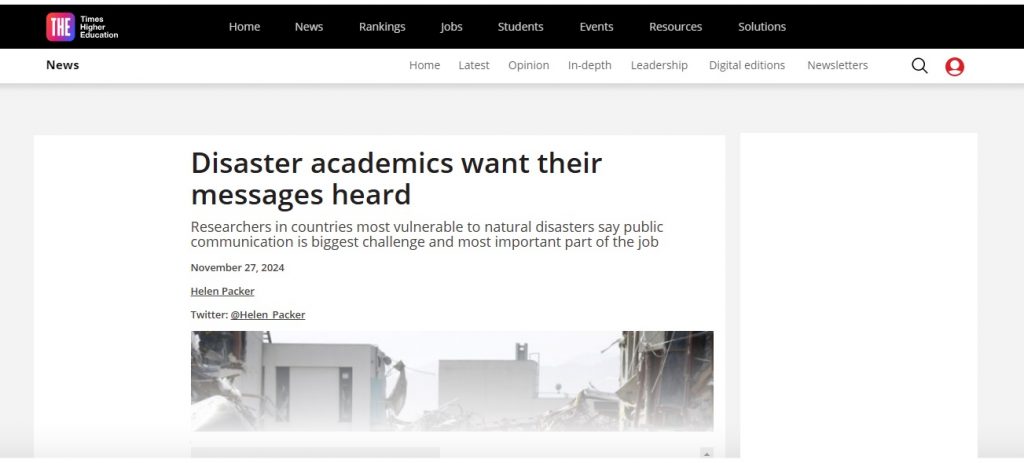 Screenshot of the title page of the article written by Helen Packer from the Times Higher Education website
Screenshot of the title page of the article written by Helen Packer from the Times Higher Education website
According to Times Higher Education, researchers consider communication as one of the biggest challenges they’re facing right now in disaster preparedness. This is evident for the Philippines, a country both situated in the Pacific Ring of Fire and within the Typhoon Belt. The Philippines has reached number 1 on the disaster risk index as of 2024. Despite the high risk of disasters in the Philippines and other developing nations, the majority of research is done in developed countries with more resources to spend but less risk of disaster. This can result in a “disconnect” between researchers and those the research is for, with a failure to address the specific needs of the country.
Much is being done in the Philippines in order to avoid this trend. “We really have a very big problem, especially with climate change, wherein the predictions would be that cyclones will become more powerful, the rains will become heavier, there will be more frequent floods, widespread landslides,” said Dr. Mahar Lagmay, Executive Director of the University of the Philippines Resilience Institute (UPRI). According to the UPRI, education is one of their most important duties, with the reasoning that if no one embraces their research then their research is useless. Hence, several programs are headed by the UPRI to encourage citizen science, such as flood model validation, where individuals can send photos of floods to help verify their data.
Other institutes in the region, such as the Tsunami and Disaster Mitigation Research Center (TDMRC) at Indonesia’s Syiah Kuala University, pursue the same goals of sharing their research not only with the academic community, but also with the local populace. Shinichi Kuriyama, a professor at Tohoku University’s International Research Institute of Disaster Science, has said that “After a huge disaster, people are interested and act, but after a while, people gradually forget about it and their interest and action decreases”, in support of greater communication with the local community.
Read the full article by the Times Higher Education by clicking on this link.
